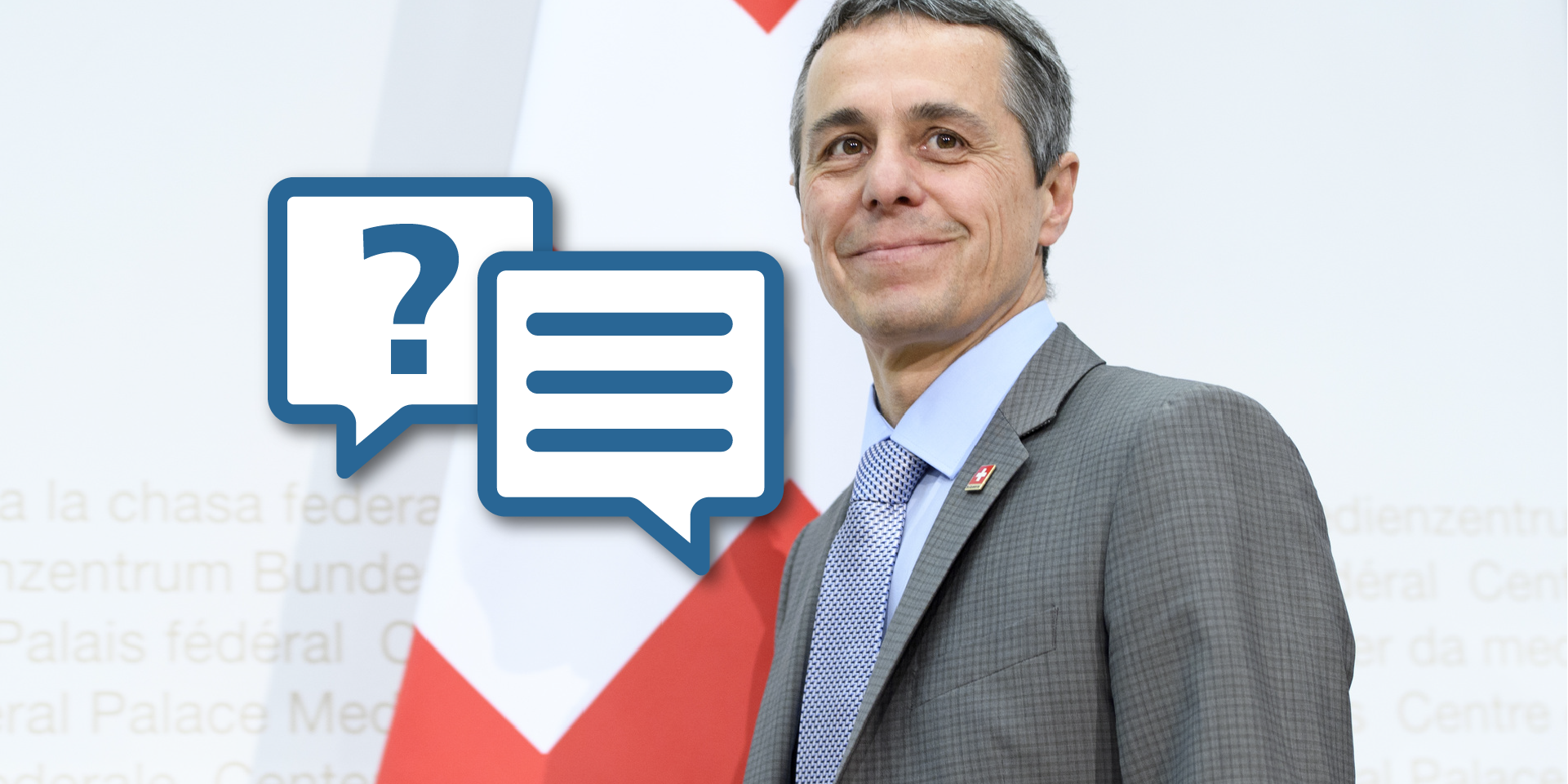"We now have clear criteria and greater transparency in development cooperation"
In an interview with the Swiss newspaper Blick, Federal Councillor Ignazio Cassis, head of the Federal Department of Foreign Affairs, speaks about Switzerland's International Cooperation Strategy 2021–24, which was adopted by Parliament on 21 September 2020. Mr Cassis says that the new strategy is clearer, more measurable and more transparent, making it a success for the FDFA, and also lays out the two possible scenarios for Switzerland's EU policy depending on the outcome of the federal popular initiative 'For moderate immigration' (Limitation Initiative) on 27 September.

Switzerland's International Cooperation Strategy 2021–24 has been realigned. It is clearer, more measurable and more transparent. © FDFA
These are important weeks for the FDFA. The first hurdle has been cleared: the National Council and the Council of States have adopted Switzerland's International Cooperation Strategy 2021–24 (IC Strategy 2021–24). On 27 September, Swiss voters will vote on the federal popular initiative 'For moderate immigration' (Limitation Initiative), which will have a major impact on Switzerland's future policy towards the EU. In an interview with Blick, Federal Councillor Ignazio Cassis praises the adoption of the IC Strategy 2021–24 and warns against the consequences of a 'Yes' vote in the popular vote on the Limitation Initiative.
IC Strategy 2021–24: clearer, more measurable and more transparent
Switzerland's international cooperation strategy has become leaner. It has been trimmed down to 61 pages from the previous strategy's 320 pages. But that's not all. "We now have clear criteria, measurable methods and greater transparency in development cooperation," Mr Cassis tells Blick.
Switzerland's International Cooperation Strategy 2021–24 defines priority regions and themes. Among other things, it provides for closer cooperation with the private sector, which Mr Cassis insists will be of paramount importance for international cooperation in the future. "The private sector is playing an increasingly important role. Why? Because we want to promote development through job creation. The fact is that nine out of ten jobs in developing countries are created by the private sector." Switzerland's work in Mozambique is a clear illustration of this, notes Cassis: after the signing of the Swiss-brokered peace agreement in Mozambique in 2019, thousands of soldiers have found themselves unemployed. "They need new jobs – and in Mozambique, agriculture is the only option. But to get started, people need money to buy seeds and farming tools, for example. In collaboration with a South African insurance company, we are currently exploring the introduction of new financial products so that former soldiers and farmers will have money to grow coffee. But who can they sell their coffee to? Nespresso has pledged to buy the coffee growers' product for five years, guaranteeing them an income. Everybody wins – and neither the South African bank nor Nespresso will get any taxpayers' money from the project," adds Cassis.
The new strategy also bolsters the confidence of the Swiss Agency for Development and Cooperation (SDC) in its own capability to do its job. Working in countries plagued by wars and corruption is not easy. A clear strategy helps the SDC to carry out its work.
Limitation Initiative: A 'No' vote would send a clear signal to the EU
According to the polls, Swiss voters will reject the Limitation Initiative, which seeks to cancel the Agreement on the Free Movement of Persons. But Federal Councillor Ignazio Cassis is careful not to count his chickens before they are hatched, and warns that a 'Yes' vote would put an end to the free movement of persons within one year. He is emphatic on this point: "If the initiative passes, Switzerland would have to negotiate an end to the Agreement on the Free Movement of Persons within one year and if no solution were to be found, the Federal Council would have to terminate the agreement within a month of the one-year deadline. This would lead to the automatic termination of the six other Bilaterals I agreements within six months. Switzerland would have to re-build its position at the heart of Europe from nothing.
A 'No' vote would send a clear signal to the EU that Switzerland is determined to continue to pursue the bilateral approach. For Ignazio Cassis, it is clear that Switzerland's future and prosperity depend on good relations with the EU. "The Federal Council sees the consolidation and further development of the bilateral approach as the best way forward for Switzerland."
